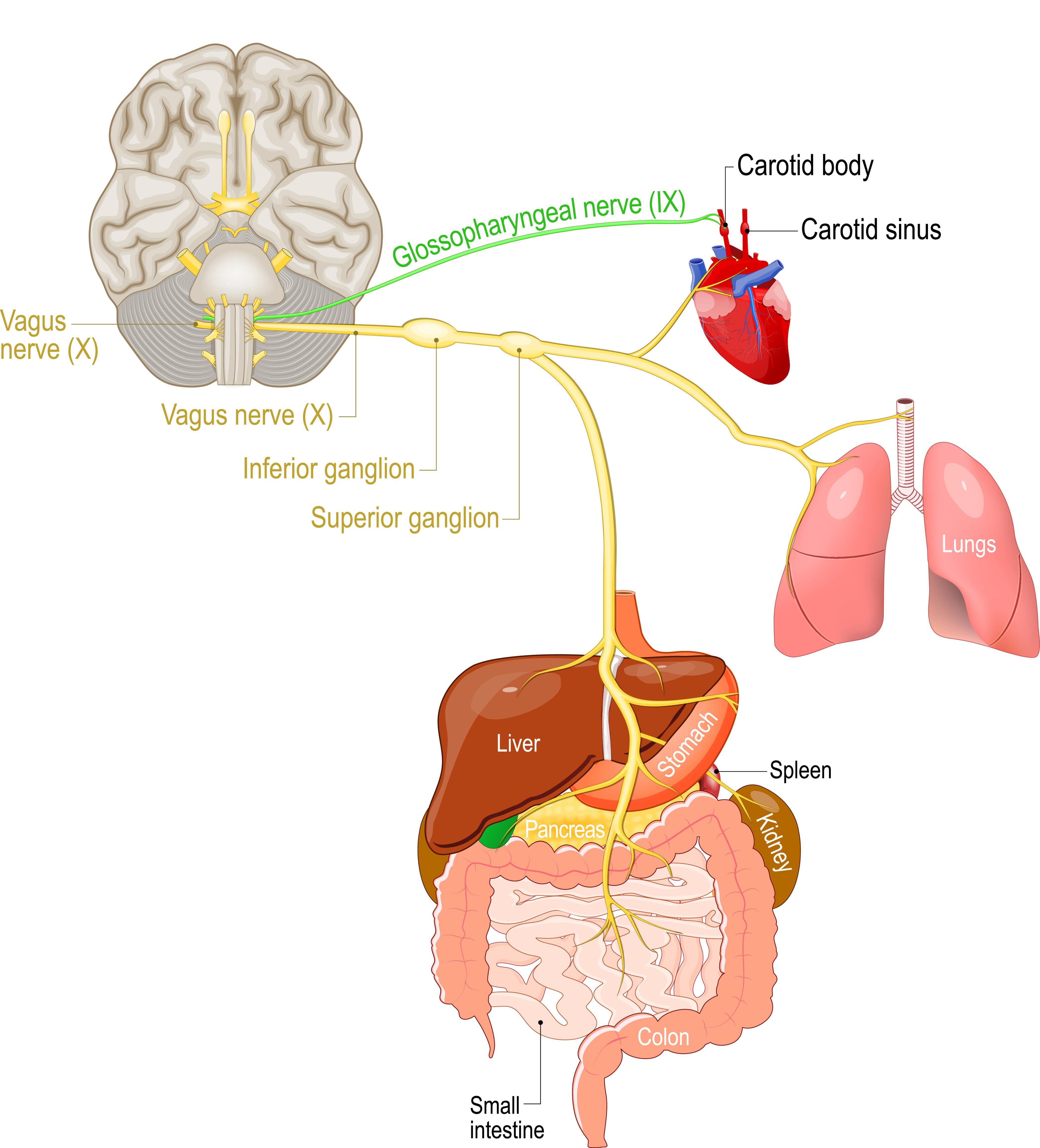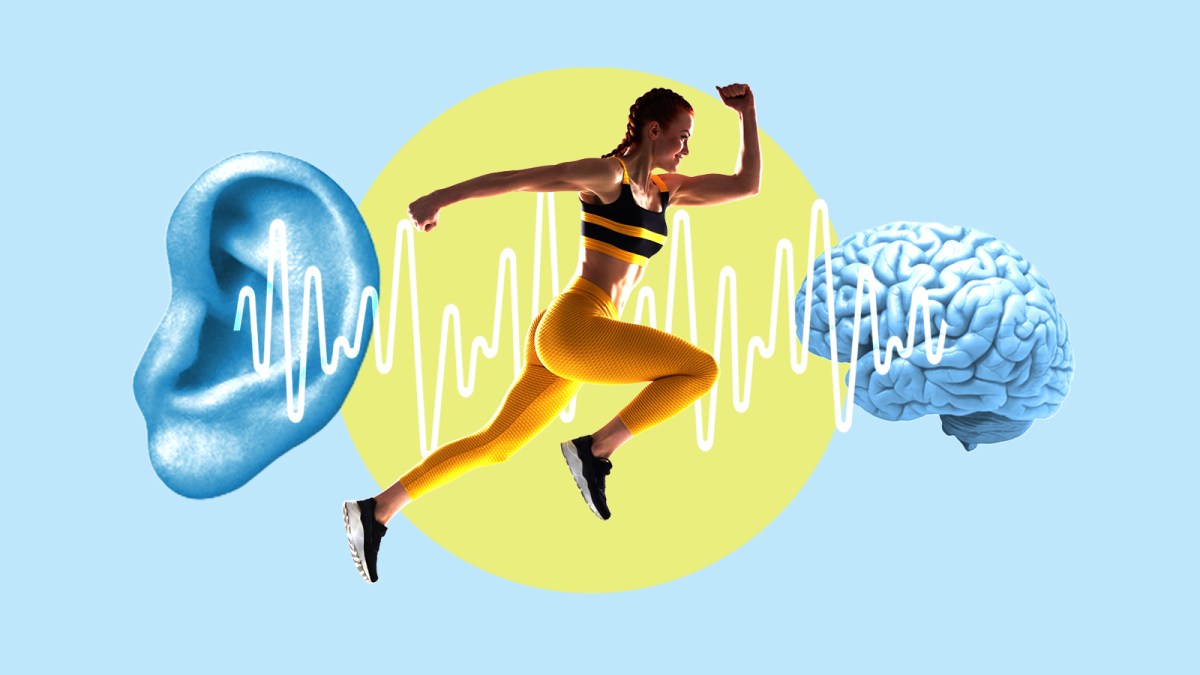Does exercise always feel like hard work, leaving you out of breath with your heart racing? Applying an electric current to your ear for 30 minutes a day could make it feel much easier, scientists have said.
Researchers at Queen Mary University and University College London have found that electrically stimulating the vagus nerve, which runs from the brain down through the neck and into the chest and abdomen, could make people’s bodies much more efficient during exercise.
They tested a device that clips to the outer ear to deliver gentle electrical stimulation to the nerve, which has been found to play a role in regulating the function of the heart and other systems in the body.

The path of the vagus nerve
ALAMY
The study, published in the European Heart Journal, found that the device could “offer an inexpensive, safe and scalable approach to improve exercise capacity”. It could be used to “improve exercise tolerance and promote cardiovascular health”.
For the research, 28 people were asked to wear the stimulator for half an hour a day for a week, while the other half wore a dummy device. They then switched for another week, taking part in regular exercise testing.
“After using the vagus nerve stimulator device for seven days, participants’ oxygen uptake during exercise increased by 4 per cent,” researchers found.
“This was accompanied by improvements in key functional exercise measures, such as their maximum breathing rate, which increased by an average of four breaths per minute, and maximum heart rate, which increased by four beats per minute during exercise.
“As a result, those wearing the stimulator devices were able to exercise more intensely compared to when using the dummy device.”

Increasing vagus nerve activity was found to reduce inflammation
MICHAEL SWALLOW/GETTY IMAGES
They also analysed blood samples and found that those who used the device had lower levels of inflammation in their body.
“This suggests that, much like exercise, the use of the device can help reduce inflammation — the overreaction of the immune system to things like stress, pollution and poor diet, which can cause damage in the body over time,” the research found.
Professor Bryan Williams, the chief scientific and medical officer at the British Heart Foundation, which funded the study, said: “This early study suggests that a simple technology, which harnesses the connection between the heart and the brain, can lead to improvements in fitness and exercise tolerance. While more research is needed involving people with cardiovascular disease, this could one day be used as a tool to improve wellbeing and quality of life for people with heart failure.”
• Want better health, less anxiety, more sleep? You’ve got a nerve
Professor Gareth Ackland, at Queen Mary, who led the study, said: “Maintaining physical activity is essential for every aspect of cardiovascular, emotional and cognitive health. The outcome of the trial is consistent with the significant body of evidence pointing to an important role of the brain in optimising exercise performance and regulating the activity of the immune system, helped by the vagus nerve.
“We will need to carry out larger trials to confirm our findings, but the results of this study in healthy volunteers suggest that increasing vagus nerve activity can improve fitness and reduce inflammation, potentially offering new approaches to improve heart health.”

